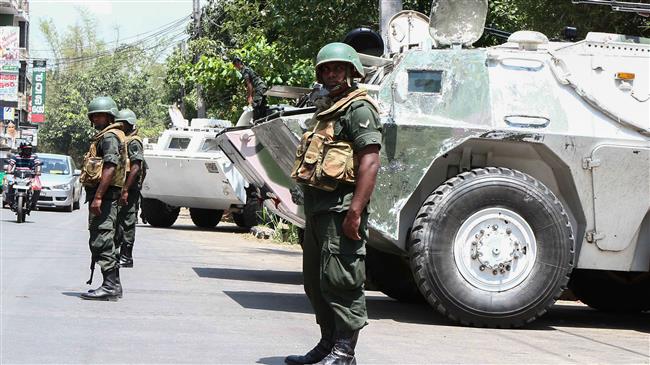
RNA - Fresh tensions erupted in the Buddhist-majority city of Kandy and the surrounding hillside when Buddhist rioters took to the streets on Wednesday night in reaction to the death of a young man from their community, who according to authorities was killed after a grenade he was carrying detonated prematurely in his hands.
Sinhala-Buddhist mobs oddly accused the minority Muslim community for the death.
The government ordered a state of emergency on Tuesday and deployed troops to the city, but the Buddhist mobs have been defying the curfew by continuing attacks on mosques and Muslim properties.
Meanwhile, all Muslim-owned businesses remain shut. All schools have also been suspended in Kandy since Wednesday.
“There is some fear among Muslims that they could be targeted on Friday... We will ensure their safety and security,” said Army Chief Mahesh Senanayake while visiting Kandy on Thursday.
According to Press TV, he promised an increased military presence near mosques across the country.
Despite a night curfew in the city, police said three boats belonging to a Muslim businessman had been torched.
According to a local Muslim politician, who spoke to CNN on Wednesday, four mosques, 37 houses, 46 shops, and 35 vehicles were destroyed in the initial outbreak of violence.
Images shared on social media also showed widespread damage to the Muslim areas of the city and nearby villages.
Sri Lankan Prime Minister Ranil Wickremesinghe denounced the “racist and violent acts” in Kandy and promised to “take further action.”
Muslims, who make up only eight percent of the country’s population, have systematically been targeted by the Sinhalese Buddhists since 2014 in southwestern Sri Lanka after a Buddhist monk was allegedly attacked by a Muslim group. The unrest has so far displaced 8,000 Muslims and 2,000 Sinhalese Buddhists.
847/940